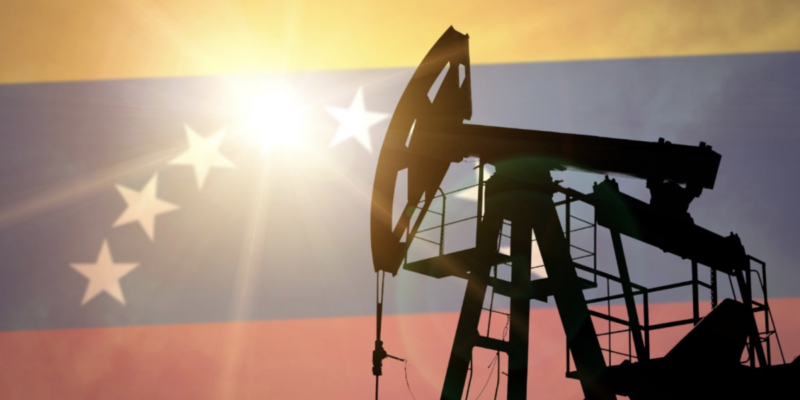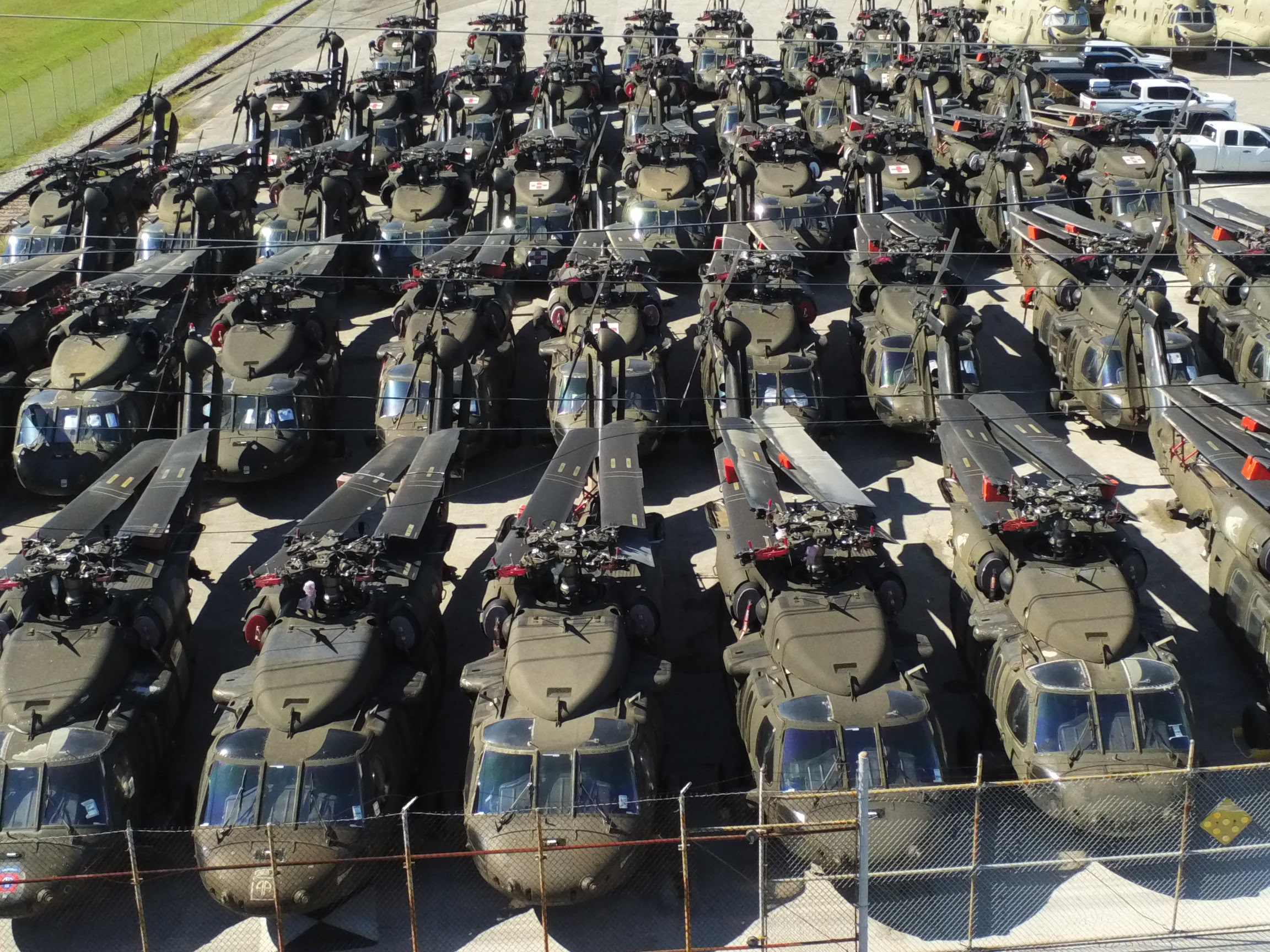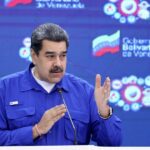Venezuelan Dictator Nicolas Maduro has been busy strengthening ties with U.S. adversary nations. After attending Turkey´s Tayyip Erdogan’s presidential inauguration, he visited Saudi Arabia, which recently signed cooperation agreements with Iran —brokered by China— and Syria— to strengthen bilateral political, diplomatic, and energy relations.
Meanwhile, in this hemisphere, Maduro hosted Russia’s Foreign Affairs Minister Sergei Lavrov last month and they agreed to expand cooperation in various areas, including oil, health, agriculture, and new technologies. Venezuela’s relations with Russia, Iran, Turkey and China have been pivotal to help each other skirt Western economic sanctions. As such, their ties have deepened.
“The Biden Administration’s refusal to enforce sanctions on China’s illegal importation of Iranian oil has incentivized Russia to get in on the game,” said Florida Rep. Michael Waltz (R) to The Floridian in a statement.
“China is now the world leader in consuming sanctioned oil from rogue states, and the U.S. has done nothing,” he added.
Geopolitical experts are also concerned about the increased penetration of Chinese and Russian companies in Latin America. Luis Fleischman, co-president for the Palm Beach Center for Democracy & Policy Research and national security expert, warns that this could bring additional “tyrannical regimes, corruption and massive migration to the United States.” He also believes that U.S. companies “are our only leverage in the region. American companies must maintain a presence [in Venezuela],” added Fleischman, “otherwise, Russian and Chinese companies will take over.” He also noted that the presence of U.S. companies in Venezuela “must continue to put pressure on the Venezuelan government” to advance toward democracy.
Eduardo Gamarra, Political Science & International Relations professor at Florida International University (FIU) and Latin America expert, believes that “unless the U.S. decides to have an alternative approach” to Chinese and Russian expansion in the region, “and really ratchets up American investment… things are going to be the same…there’s no real U.S. investment the way the Chinese are doing it.”
When asked about this issue, Florida Rep. Cory Mills (R) said in a statement: “With China and Russia continuing their efforts to control many of the natural resources throughout the Western Hemisphere, including oil production, it is important for the U.S. to keep whatever energy foothold and possible dialogue it has throughout the region.”
Latin American Anti-U.S. Sentiment
At a recent meeting of South American presidents hosted by Brazilian President Luiz Inácio Lula da Silva in Brasilia, Lula hoped the region would unite with him and Maduro, against the U.S. But much to his surprise, that wasn’t the case. Both Uruguay’s conservative President Lacalle Pou and Chilean’s leftist President Gabriel Boric, seemed to draw a “line in the sand” when Lula stated that Venezuela’s human rights violations and humanitarian crisis is a mere “narrative” that must be changed.
“I showed respectfully my disagreement with what President Lula said,” adding, “that the human rights situation in Venezuela was a ‘narrative.’ It’s not a narrative. It’s a reality, it is serious,” Boric told reporters on the sidelines of the conference.
Venezuela’s Humanitarian Crisis Expected to Worsen
What's certainly not a narrative but a real human disaster, is the country’s downward spiraling economy, which is driving even more Venezuelans to flee the country in hopes of having a shot at life.
In its most recent inflation ranking (April 2023), Trading Economics ranks Venezuela as having the highest inflation rate in the world, with 436%, well above those next on the list: Lebanon (264%), Syria (139%) and Argentina (108%).
Cendas-FVM (the Center for Documentation and Social Analysis for the Venezuelan Teacher’s Federation), reported that in April, Venezuelans needed 101.7 minimum wages, set at $5.70 per month, to purchase a basic food basket for a 5-person family.
Economic projections for end of year only point downward. “We believe that [Venezuela’s] growth will be a meager 2%,” said Asdrubal Oliveros, head of EcoAnalitica, a well-respected Venezuelan analyst firm, to news agency EFE. He also warned of deterioration in “social conditions.”
So what can be done to address the humanitarian disaster?
“I hope the humanitarian fund is released,” added Fleischman, referring to a proposed $3.2 billion UN-administered Venezuela humanitarian fund resulting from an agreement struck last year between Maduro and opposition representatives. Although the U.S. government assured the UN last month that contributions to its humanitarian fund would be safe from seizure by creditors, there have been no further news on if, when, or how disbursements might be made.
Venezuela Needs to Restart its Economy using the Oil Industry as Jump-Starter
Venezuelan analysts believe that the best solution is to enable a gradual recovery of the economy through the oil industry, the country’s only short-term, viable economic engine.
“We need more [oil] companies here, more employment in the oil sector, even if it’s not a lot of people, but that flows into other areas of the economy and automatically generates economic growth,” said economist Luis Oliveros in a recent Globovision interview. “But that’s impossible [to do] under sanctions,” he added.
Oliveros clarified that PDVSA’s problems were not brought about by sanctions, there was already a collapse, but sanctions were “‘a bomb’ for state-oil company PDVSA and our refineries.”
Gamarra believes that the collapse of the Venezuelan economy has resulted from a “combination of sanctions and pure corruption and mismanagement,” adding, “sanctions, especially in the oil sector have really contributed to bringing down the Venezuelan economy and as a result, have more of an impact on the population than on the regime itself.”
Oliveros also believes that “recovering the oil industry is urgently needed” in Venezuela. To achieve that, he believes that the U.S. should award other Western oil companies such as ENI and Repsol production and exporting licenses, so that production might increase significantly. “With ENI, Repsol and other oil companies, it’s not outrageous to think of achieving double-digit economic growth, although we can’t do that under sanctions,” he added.
For Rep. Mills, it might be the right time to reassess the U.S.’ current sanctions regime against Venezuela.
“The current sanctions against Venezuela’s criminal Maduro regime need to be reassessed as our adversaries (China/Russia) continue to undermine U.S. foreign policy throughout Latin America by helping then skirt those sanctions and furthering their economic and diplomatic relations," stated Rep. Mills.





